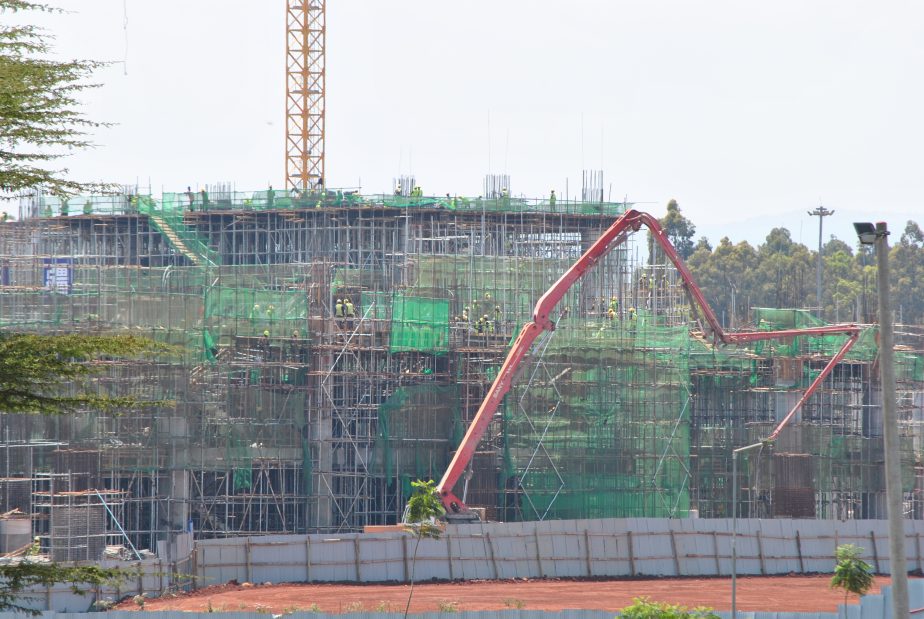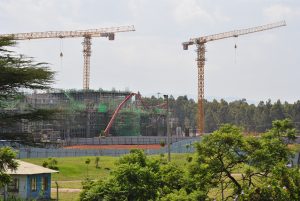As China’s foreign policy toward the African continent developed into a(n even more) pragmatic approach in the early 1980s – in particular, following the 11-country tour of Premier Zhao Ziyang in December 1982 – Sino-African relations became increasingly multifaceted. Since the first years of the reform and opening-up policy announced by Deng Xiaoping in 1978, the Chinese side has favored “package deals” that touch on numerous dimensions of the bilateral contexts, including natural resources extraction, infrastructure development, and cultural exchanges – this last one embracing Confucius Institutes and classrooms, government scholarships and cultural and sports exchanges.
As part of the so-called “people-to-people”-centered Chinese approach, sports facilities, and especially soccer stadiums, have played a role in demonstrating China’s goodwill and human-focused policy framing toward African societies. Huge stadium construction has become part of the daily realities of many large African cities, part of a renewed phenomenon in the complex of Africa-China relations.
As Valentin Lindlacher and Gustav Pirich presented in their article about “The Impact of China’s ‘Stadium Diplomacy’ on Local Economic Development in Sub-Saharan Africa” for the journal World Development, “stadiums, especially soccer venues, stand out as a unique type of investment project in international development finance, which is part of the complexity of the package deals from a cultural diplomacy perspective.”
In this series, we will explore several of China’s sports stadium projects in various African countries. This first piece focuses on the Talanta Sports Stadium in Nairobi, the capital of Kenya, which is planned to be ready by the end of 2025. The stadium will serve as one of the venues of the Africa Cup of Nations (AFCON) in 2027, which will be co-hosted by Kenya, Uganda, and Tanzania. These three East African states were the founding members of the East African Community, one of the eight regional economic communities accredited by the African Union.
Talanta Sports Stadium is specifically designed for football (soccer); there will be no athletics track around it, but it will naturally be suitable for international matches. Rugby matches and concerts are also planned for the multifunctional facility.
This will be Kenya’s first international sports complex since the inauguration of the Moi International Sports Centre in 1987. In preparation for AFCON, in addition to the new stadium, the Nyayo and Kasarani stadiums will also be renovated.
On July 30, 2024, Kenyan President William Ruto visited the construction site for the Talanta Sports Stadium and concluded that the project was progressing well. On our site visit on January 22, 2025, we would be convinced of the same, given the enormous pace of construction.

Construction work on the the Talanta Sports Stadium in Nairobi, Kenya, as seen on Jan. 22, 2025. Photo by Istvan Tarrosy.
The construction of the stadium, designed to have a capacity of 60,000, is being carried out by the China Road and Bridge Corporation (CRBC). The work started in March 2024, and although the planned completion date was set for December 2025, the contract allows some flexibility for the contractor to finish the work within two years.
Interestingly, the construction work implemented by CRBC is supervised by the Kenyan Defense Forces (KDF) – the official explanation being that they have proven their capability by the rapid construction of the 10,000-seat Ulinzi Sports Complex. Their task is presumably to create and support the infrastructural conditions for quick work execution. At the entrance of the construction site a soldier was the gatekeeper, who explained in a calm manner that it was (understandably) not possible to enter the premise without a fixed appointment.
Initially, the costs were not made public as originally planned, according to some reporting. The Kenyan government intended to implement the project under a PPP (Public Private Partnership) scheme. Eventually, the cement supplier of the project shared the details in a Facebook post, setting the total cost at $350 million, or 45.3 billion Kenyan shillings. That is 30-40 percent higher than the originally projected cost based on other African stadium projects or the cost promised by the government, making the Talanta Sports Stadium the most expensive sports complex in Kenya. The company involved in the PPP structure is not known, and the possible Chinese loan (if there is one) has not been made public either.
PPP construction is a model that has not really been associated with Chinese international investments so far, but has already been used by companies within China. The PPP model can therefore be seen as a new phenomenon for Chinese investments in Africa. It seems that a gradual shift in the financial governance of the Belt and Road Initiative (BRI) has moved the needle toward the PPP arrangement. Writing for the Journal of Current Chinese Affairs, Kjeld van Wieringen and Tim Zajontz analyzed in detail China’s turn toward PPPs in the African continent, writing: “As overseas lending has become increasingly economically risky and politically costly, the Chinese government has identified overseas PPPs as a suitable instrument to keep up demand for Chinese infrastructure and construction firms, which have built up huge capacities across Africa, too.”
However, they also warned of the inherent risks: “China’s experimentation with PPPs in Africa engenders new challenges, including popular contestation, controversies over financial terms and corruption.”
The Kenyan government’s secrecy does not help with the lack of clarity. Further details will be needed on the financial framework for the Talanta Sports Stadium once the company involved or the financial background becomes known.

































